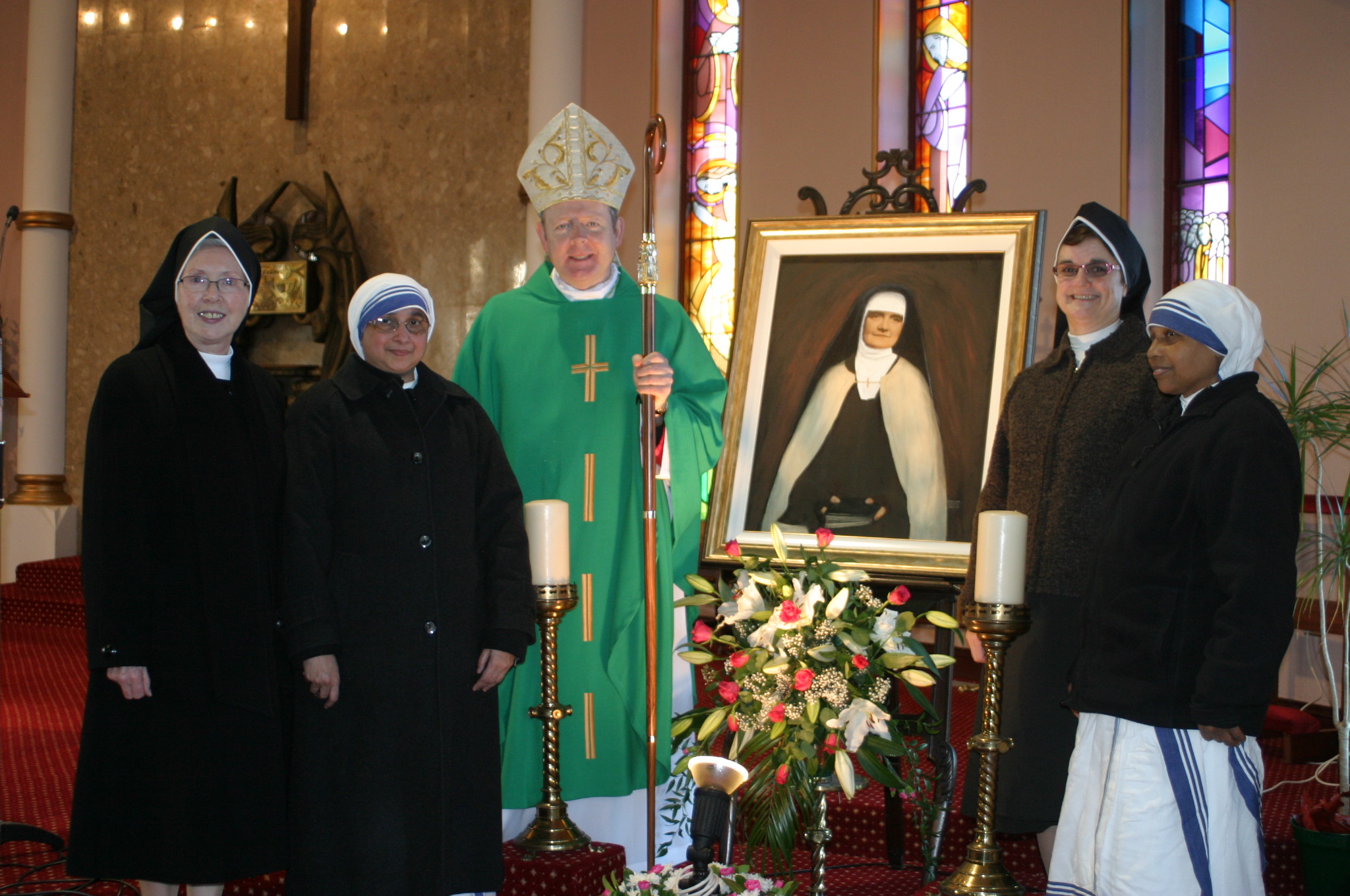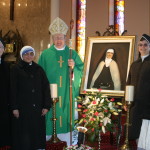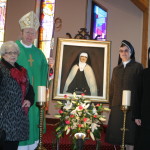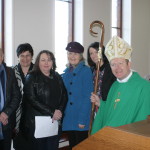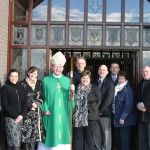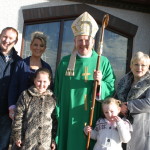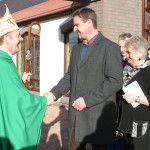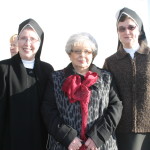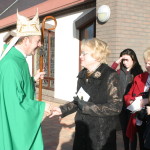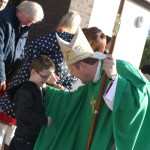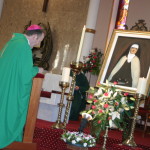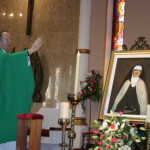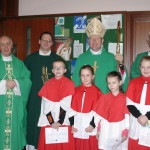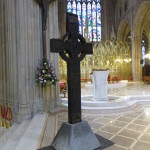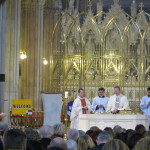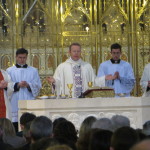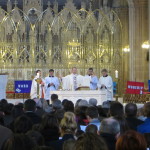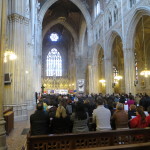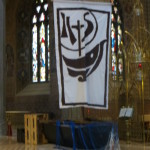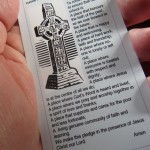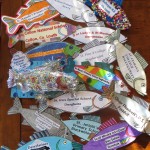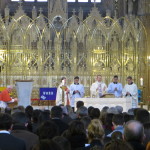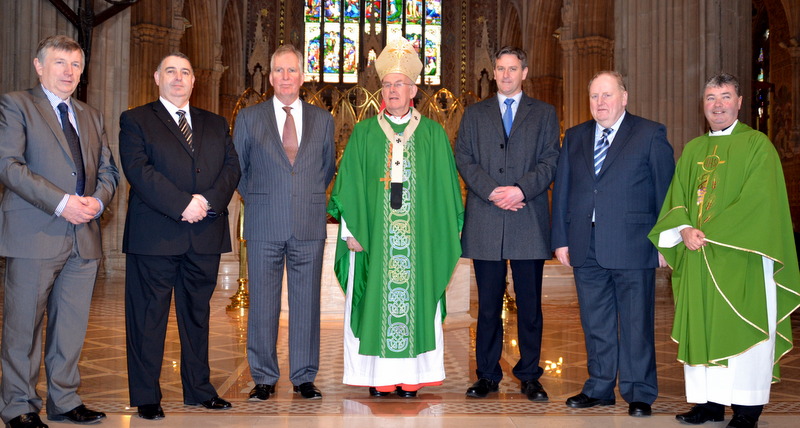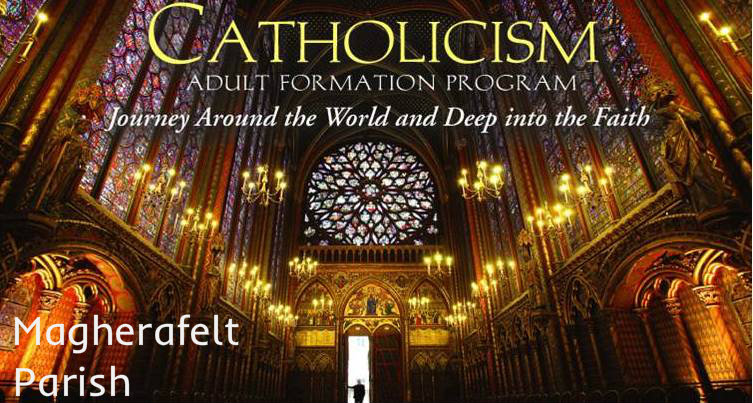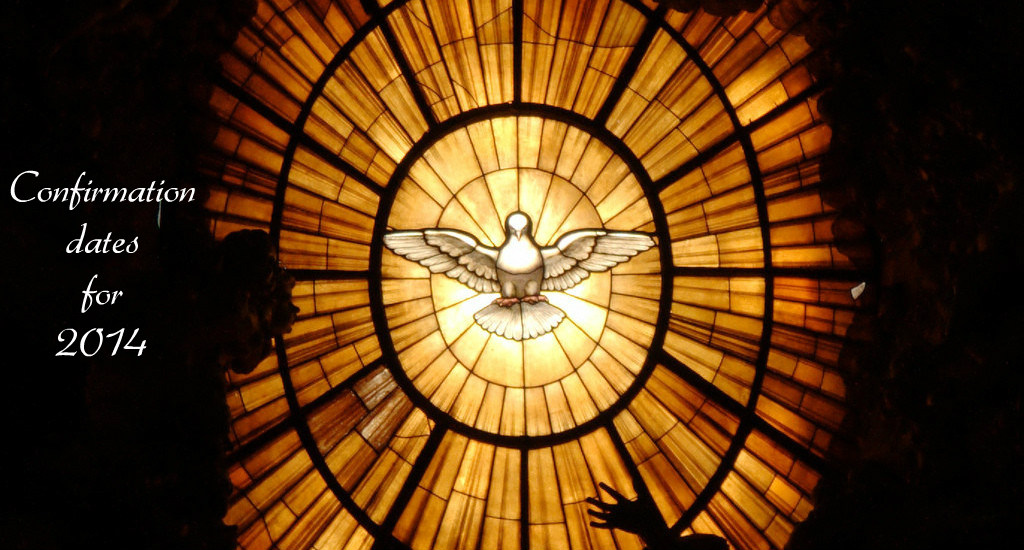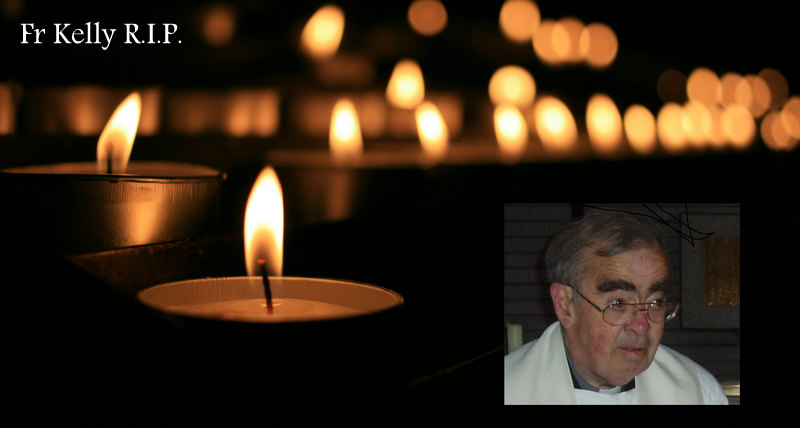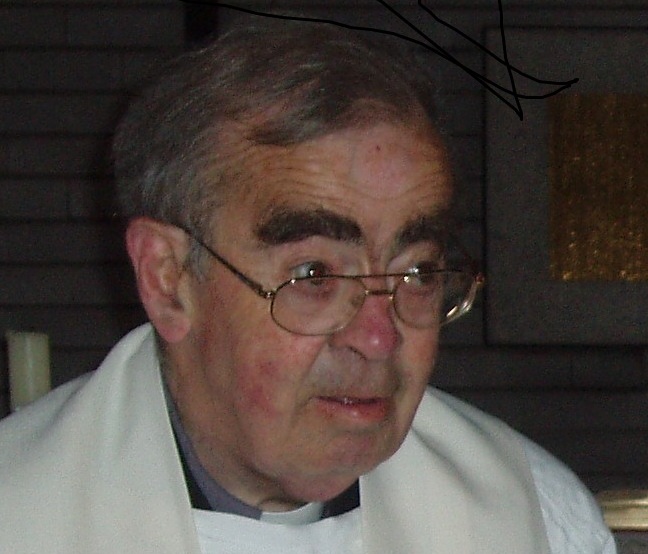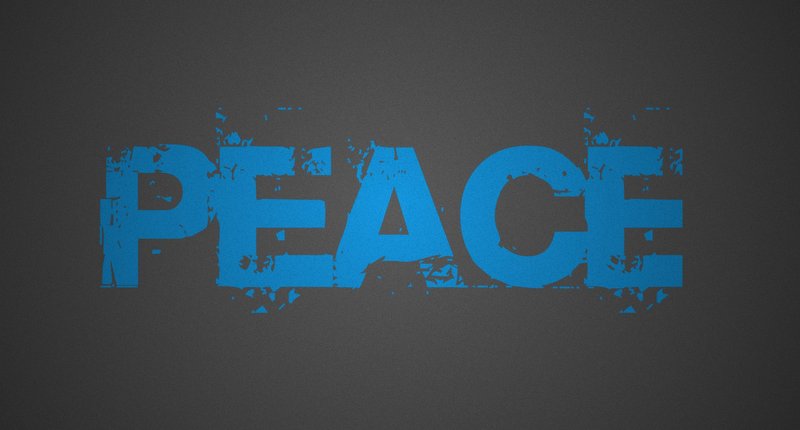Events of ecumenical interest in the Diocese since the 2012 Week of Prayer
In recent years ecumenical relations throughout the Archdiocese has become ever more normalised with new ecumenical initiatives getting underway at parish level, which promote practical ecumenism at grassroots level and testify to the change that has taken place in the past three decades. Over the past year the focus of clergy fellowships and church fora in the northern part of the Archdiocese has been on the significant centenaries which have been marked during the year, such as the centenary of the 1912 Ulster Covenant, or will be marked in the next few years, such as the 1916 Easter Rising. The importance of these anniversaries and how we remember and mark them in an inclusive, yet sensitive way is something which clergy and laity from different Christian denominations are trying to grapple with as they are part of our cultural and political heritage, yet can prove to be quiet divisive at times. Some Protestant clergy readily admit to feeling under pressure from their congregations where ecumenical ventures with Catholics are concerned. This coupled with their reluctance to having ‘free church’ ministers involved in clergy fellowships, can greatly determine the pace of ecumenical activity in any given locality.
Church Fora/Clergy Fellowships
Armagh
Armagh Clergy Fellowship organised four evenings during Lent 2012 in each of the four main churches in Armagh where people from the different Churches were invited to come along to learn about the traditions and practices associated with each of the different Churches.
The Cathedrals’ Partnership, an initiative between the Catholic and Church of Ireland Cathedrals in Armagh, had another successful year. In June 2012 it organised a very successful reflection day in Holy Cross Monastery in Rostrevor. It also hosted an Advent evening in mid-December which comprised of music, prayer and poetry with a very large number of people attending. The Partnership also organised five evenings during Lent where people were invited to come together to reflect on a piece of scripture. Between 30 and 40 people attended on the different evenings.
Dungannon
Dungannon Clergy Forum had another busy year in 2012. It aims to build relationships of confidence, trust and provides an open space to respond to local issues and works in close partnership with Dungannon and South Tyrone District Council, who provide financial assistance to the Forum. While all clergy in the borough are notified, the attendance is usually limited to 12 to 14 clergy, derived mainly from the Catholic and Church of Ireland denominations. In the past year the Forum circulated a questionnaire to all prospective members to ascertain their attitude and commitment to it, but the number of replies was rather limited. Nonetheless, it continues to meet on the first Tuesday of each month. The Clergy Forum’s meetings interchange between business meetings held in the Council offices and social meetings held in a café in Dungannon. The decision to have a social gathering in a public place was quite deliberate and the witness value of clergy from different denominations being seen to socialise together has been commented on very favourably in the local community. In September most of the Forum members attended a discussion workshop organised by the main criminal justice organisations in Northern Ireland. Senior representatives of the Police Service of Northern Ireland (PSNI), Northern Ireland Courts and Tribunals Service, Probation Board for Northern Ireland and the Public Prosecution Service facilitated the session.
Magherafelt
The clergy of the four main churches in Magherafelt continue to meet every second month in each other’s homes. In November 2012 they participated in a 14 mile charity walk with ten people from each church congregation. In all, 45 people took part in the walk which began at the Charis cancer charity shop in Rainey Street, Magherafelt, to the charity’s therapy house in Lough Fea, near Cookstown. It received great publicity having raised almost £7000 for the charity.
The local parish priest, Fr John Gates, gave the address at the Methodist Christmas carol service while the Church of Ireland Rector, Canon Terry Scott, gave the address at the carol service in the local Catholic church. Although things are progressing well the clergy always have to move slowly because the Presbyterian minister feels under a lot of pressure from his congregation with regard to Ecumenical ventures with Catholics. Informal meetings have also taken place from time to time between the local Catholic clergy and the local Baptist minister, who would like to join the clergy fellowship. However, clergy from the other denominations are not keen to foster such a development.
Cookstown
Cookstown and District Clergy Forum hold their monthly meeting in each other’s homes. During the past year the Forum organised a number of events and initiatives such as meeting with councillors representing various political parties in the borough, meeting with members of local branch of the Royal British Legion, and meeting with members of the PSNI. Mindful of significant anniversaries which are being marked in the next few years, the Forum organised a number of history lectures. The first, on 13th February was delivered by the well-known historian, Dr Eamon Phoenix, and focused on the 1912 Ulster Covenant. The second, also by Dr Phoenix on 12th March, dealt with the 1916 Easter Rising. John Richie, from Larne, gave a presentation on “Irish War Memorials” on 9th May. Dessie Gordon, of the Friends of the Somme Association, delivered a lecture on the “Battle of the Somme” on 11th June while Colin Cobb of the Titanic Centre in Belfast, gave a lecture on 12th September on the sinking of the Titanic, which was followed on 1st October by a visit to Queen’s Island, Belfast, to learn more about the construction of the Titanic. On 21st September 2012, the Forum members marked United Nations Day for Peace by handing out prayer cards for peace and holding a short peace prayer vigil in the centre of the town.
On 4th and 5th October Dr Phoenix led Forum members on a trip to Dublin visiting sites associated with the 1916 Easter Rising. This was followed on 10th October by a presentation by Rev. Dr. Johnston McMaster from the Irish School of Ecumenics, entitled “Ethical and Shared Remembering in a Decade of Centenaries.” On Remembrance Day in November they participated in the Remembrance Service at the town’s cenotaph. The previous week, Don O’Donnell from the School for Peace Studies gave a presentation on “Poppies in relation to the First and Second World Wars.” In December the clergy visited the local hostel for men and participated in a prayer service with residents. That same month they also took part in the Women’s Aid prayer service and an outdoor Carol Service with the local silver and brass band at the town’s Christmas tree on 15th December.
Coalisland
In the past year the local parish priest, Fr Paul Byrne, and the local Church of Ireland rector have worked on some anti-drugs initiatives. Both are part of the Dungannon District Council Clergy Forum which meets every other month. On Good Friday 2012 local clergy participated in a ‘walk of witness’ with members of their Catholic or Church of Ireland congregations. Sadly, the Presbyterians and the Methodists in that part of Co. Tyrone aren’t as forthcoming in ecumenical matters. Consequently, they felt unable to take part.
Portadown
The Churches Together Group continues to meet every month with clergy and laity from the Church of Ireland, Presbyterian Church, Methodist Church, Society of Friends, Salvation Army, Vineyard, and Catholic Church participating. Rev Christina Bradley (Armagh Road Presbyterian Church) and Rev Ken Robinson are the current Co-Chairs, while Fr Michael O’Dwyer, PP (Drumcree Catholic Church) is the current secretary. From June of this year Mrs Myrtle Wright, Methodist will take over as Chair. During the past year, the Group organised an Easter Dawn Service at Craigavon Lakes, and a day of reflection in May for members at Moyallen Quaker House.
In the past year they organised a ‘Good Friday Walk with the Cross’. It took place in the morning and each church group left their respective place of worship and walked to the centre of Portadown to meet up in the plaza in front of St Mark’s Church of Ireland. Along the way excerpts from the Passion narrative from St Mark’s Gospel were read. The crucifixion scene was enacted in the plaza where each congregation met. Seagoe Church of Ireland supplied the large cross for the occasion. In the plaza the Gospel was read, and hymns were sung and a moment of silence was observed. Then the whole group walked up and down the main street. It was necessary for the Group to make a formal request of the Parades Commission to march, although on the day due to the large numbers present, the footpath seemed the easier option to walk. PSNI patrol cars accompanied the various congregation members along their respective routes.
The Lay Forum Group organised a pre-Christmas carol service in Patrick’s Catholic Church. The Lay Forum meets twice a year for lunch and a social, usually in June and December and its current chairman is Alan Turtle. It organised four significant events in the past year. There were two open discussion evenings on “Why I am” with input from a lady from the Quaker community and from Scott Cunliffe of the local branch of the Salvation Army. Both of these sessions were expertly chaired by John Bustard and all present gained significant insight into the personal faith journey of both participants.
Other events during the year were held on council owned premises. In May 2012, they hosted a well-attended evening looking at the events that led to the signing of the Ulster Covenant 100 years ago. In October they hosted a question and answer session with local politicians from Craigavon District Council. Unfortunately, there was a rather poor attendance by both politicians and the public at the event. During the course of the year, members have shared their faith journeys with other members of the forum and have made a start to fulfil their aim to visit each other’s place of worship. They also look forward to involving new blood and hopefully gaining new
ideas.
Other Ecumenical Events
Irish Council of Churches
Pádraig Murphy attended the 89th Annual Meeting of the Irish Council of Churches on Thursday 29th March 2012 at Taney Parish Centre, Dundrum, Dublin. The theme of the annual meeting was ‘Beyond Anger’ and explored the role of the Church in the context of deepening economic uncertainty. The keynote speaker was Mr Tony Brown. The Annual Meeting also incorporated the AGM and a service of worship in Christ Church Taney, during which Rev Fr Godfrey O’Donnell (Russian Orthodox Church) was installed as the new ICC president.
In Dundalk local clergy held a Walk of Witness, carrying a cross through the streets of the town on Good Friday, 6th April, beginning at St. Patrick’s Catholic Church in Roden Place and ending at St Nicholas’s Church of Ireland as well as a service for the annual Women’s Day of Prayer on 2nd March.
The Rural Enabler Programme and Community Network hosted two morning workshops on the theme of “Churches Together and Talking” in the Diocesan Pastoral Centre, the Magnet, Dundalk, on 18th May and 16th July for clergy of the various denomination in north Louth. The programme aims at supporting rural communities in the border counties, north and south, to take steps in addressing conflict impacts, racism, social inequality, and in doing so overcoming tensions, developing increased understanding and developing positive relationships.
Carrickmore
The local parish priest, Fr Seán O’Neill, and rector have met on a number of occasions over the past year. Very Rev Kenny Hall, Church of Ireland Dean of Clogher, spoke at the annual parish Novena in November 2012.
Drogheda St. Oliver’s Pastoral Area (Catholic) & Drogheda, Ardee & Kilsaran Union of Parishes (Church of Ireland) are hosting an Ecumenical Service to mark Women’s World Day of Prayer in St Peter’s Church of Ireland, Drogheda on Friday 2nd March 2012.
Appointment of Ecumenical Canons to St Patrick’s Church of Cathedral, Armagh Pádraig Murphy represented Cardinal Brady at the Installation of new ecumenical canons on Sunday, 22nd April 2012 at a service of Choral Evensong in St Patrick’s Church of Ireland Cathedral, Armagh. The two ecumenical canons appointed to the cathedral chapter by Archbishop Alan Harper were Rev. Dr Donald Watts, Clerk of the General Assembly of the Presbyterian Church in Ireland, and Dom Mark Ephrem Nolan, OSB, Superior of Holy Cross Monastery, Rostrevor, Co Down. Provision for two ecumenical canons was included in a new statute governing St Patrick’s Cathedral, Armagh, enacted by the General Synod of the Church of Ireland in 2011. The ecumenical canons are appointed by the Archbishop for a term of five years, which may be renewed. They join the Dean, Precentor, Chancellor, Treasurer, Archdeacon and four Prebendaries on the Cathedral Chapter but as non-voting members. Welcoming their appointment, the Church of Ireland Dean of Armagh, Very Rev. Gregory Dunstan, said, “In Dom Mark Ephrem Nolan and Dr Donald Watts, the Archbishop has chosen two distinguished Christians each of whom, through their own particular ministry, have exercised great influence for good in the life of the whole Church in Ireland. I am delighted at their appointment as members of the Chapter.”
Church of Ireland General Synod Pádraig Murphy attended the Church of Ireland General Synod in Christ Church Cathedral, Dublin, from 10th to 12th May 2012 as a representative of the Irish Episcopal Conference.
The annual Charles Wood Summer School for singers, organists and choir directors took place in all of the main churches in Armagh, from 19th to 26th August 2012. The rich and varied programme featured lunchtime and evening concerts, religious services, and teaching and workshop sessions. On Sunday, 26th August, as in previous years, an ecumenical service from the Church of Ireland Cathedral was broadcast on BBC Radio Ulster.
Pádraig Murphy represented Cardinal Seán Brady at a Farewell Service to mark the retirement of Archbishop Alan Harper in St Patrick’s Church of Ireland Cathedral, Armagh, on Friday, 21st September 2012. Pádraig Murphy also attended a Farewell Service of Evensong in St Nicholas’ Church of Ireland, Dundalk, on Monday 15th October 2012 for the outgoing rector Rev. Sandra Pragnell who has moved to Limerick.
Many other ecumenical initiatives took place in various parts of the Archdiocese involving people and ministers from different denominations. Most notable has been the increase in the number of ecumenical Christmas Carols Services that were held in various venues in the weeks leading up to Christmas. Such carol services have increasingly become opportunities for inter-church and cross-community contact in
recent years.
Ecumenical Events that took place during the 2013 Week of Prayer for Christian Unity
As usual, a number of events took place throughout the Archdiocese between 18th and 25th January 2013 to mark the annual Week of Prayer for Christian Unity. The Apostolic Nuncio to Ireland, Archbishop Charles Brown joined Cardinal Seán Brady at a concelebrated Mass in St Patrick’s Cathedral, Armagh, on Friday 18th January. The official announcement of Mgr Eamon Martin’s appointment at Coadjutor Archbishop of Armagh was made at a press conference following the Mass.
Armagh
Cardinal Brady hosted the customary Ecumenical Coffee Morning in Ara Coeli on Wednesday 23rd January for local Protestant clergy and their wives along with the priests of the local vicariate.
The annual Ecumenical Service for the Week of Prayer for Christian Unity took place in St Patrick’s Catholic Cathedral on Wednesday 23rd January at 7.30pm. Cardinal Brady led the service with the newly installed Church of Ireland Archbishop of Armagh, Most Rev. Richard Clarke participating in the service. The two Deans of Armagh, Rt. Rev. Mgr. Colum Curry VG and Very Rev. Gregory Dunstan (Church of Ireland), Rev. Tony Davidson, Armagh First Presbyterian Church, Rev. Denis Maguire, Methodist Church in Armagh, took part in the service in addition to clergy from the various denominations in Armagh City and district. Very Rev. John Mann, Dean of St Anne’s Church of Ireland Cathedral, Belfast gave the address. Refreshments were served afterwards in the Cathedral Synod Hall.
Drogheda
An ecumenical service for Church Unity Week took place in St Peter’s Church of Ireland on Thursday, 24th January. Parishioners from the St Oliver’s Pastoral Area (Mell and Mellifont Parishes and St Peter’s Parish, Drogheda) and from the Drogheda, Ardee and Kilsaran Church of Ireland Union of parishes took part in the service which was followed by refreshments in St Peter’s Hall.
Dundalk
Due to the recent transfer of the local Church of Ireland rector to Limerick, the annual
ecumenical service to mark the Week of Prayer for Christian Unity in the town did not take place.
Dungannon
During the Week of Prayer for Christian Unity a joint ecumenical service was held in St Anne’s Church, Dungannon. There was a good attendance from the whole community.
Cookstown
Local clergy participated in a Prayer Walk on 20th January visiting and praying in the churches of the various denominations in Cookstown. The following evening the annual ecumenical service was hosted in Holy Trinity Church Catholic Church, which saw the clergy and people from each denomination in the town coming together in prayer and fellowship. Very Rev. Kenny Hall, Church of Ireland Dean of Clogher, gave the address at the service.
Coalisland
The rector and parish priest joined together for Christian Unity week services in their respective churches and for Christian Unity week assemblies in the local Catholic secondary school. They also travelled to London as part of an inter-church study trip organised by Dungannon District Council.
Magherafelt
An ecumenical coffee morning was hosted by the priests of the parish in the Parochial House which was attended by the local Church of Ireland rector, Canon Terry Scott, Presbyterian Minister, Rev. Jonathan Curry and his assistant, and the Methodist Minister, Rev. Stephen Sheerin.
Portadown
During the Week of Prayer for Christian Unity Epworth Methodist Church congregation was host to the annual Inter-Church Service on Friday 25th January. The previous Sunday, the annual reader exchange to mark the Week of Prayer took place with readers from the various congregations visiting each other’s services to read from the scriptures.
Ecumenical events planned for 2013
Dungannon Clergy Forum are organising a three day excursion to London in February 2013. Clergy from all denominations will participate in a very full programme with visits to places of worship like St Paul’s Cathedral, Westminster Abbey, Brompton Oratory etc. They will also visited Notre Dame de France night shelter for homeless people and St Ethelburga’s Centre for Peace and Reconciliation. They are scheduled to meet with Dr Richard Chartres, the Bishop of London, and with Nicky Grumble about the Alpha programme. It is hoped that the trip will be a very valuable exercise for the Clergy Forum, both educationally and in terms of building relationships, thereby helping the members of Dungannon and District Clergy Forum to work ever more closely together in the future. Following from the success of last year, the Forum has planned five evenings during Lent where people are being invited to come together to reflect on a piece of scripture.
Pádraig Murphy will attend the Church of Ireland General Synod in Armagh from 9th to 11th May 2013 as a representative of the Irish Episcopal Conference.
Portadown Lay Forum are hosting their AGM on 6th March 2013 with a local Jesuit priest as guest speaker, giving insight into some aspects of Jesuit life and
spirituality.
In Drogheda, the St. Oliver’s Pastoral Area (Catholic) & Drogheda, Ardee & Kilsaran Union of Parishes (Church of Ireland) are hosting an Ecumenical Service to mark Women’s World Day of Prayer in St Peter’s Church of Ireland, Drogheda on Friday 1st March 2013.



